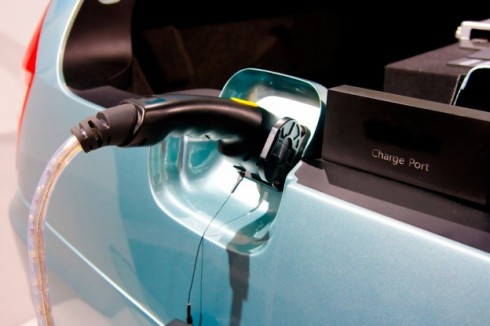Ford China and Anhui
Zotye have announced the investment sum for the newly established joint venture
to build AEVs and offer mobility services in China, However, despite being the
largest AEV market worldwide, the Chinese government is investigating
overcapacity problems.

After
signing a Memorandum of Understanding between Ford China and Anhui Zotye, the
two companies have announced the investment sum they are going to spend for
their 50-50 joint venture. The enterprises will invest USD756 million in the
new joint venture.
The
new joint venture will run under the name Zotye Ford Automobile and sell cars
under an own new created Chinese brand in the largest car and alternative
energy vehicle market in the world. The joint company was invested with
USD754.15 million in total with the registered capital of USD256.41 million.
In
order to run the business smoothly, Zotye Ford also plans to build a new
manufacturing plant in Zhejiang Province. A new dedicated sales and service
network also will be established to offer China’s city population affordable
and green mobility services in the highly polluted big Cities. It would build a
factory of battery electric passenger cars in Zhejiang province and apply to
the approving authority for construction of a 100,000 battery electric
passenger cars per year project.
The
new JV builds upon Ford’s ambitious China electrification strategy. Ford
announced earlier this year that at least 70 percent of Ford-branded vehicles
sold in the country will offer electrified powertrain options by 2025.
Sales
of hybrid and pure electric vehicles in China have grown by 50% over the last
year, and the fact that other manufacturers like Mercedes-Benz, General Motors
and Volkswagen have already partnered with Chinese manufacturers to produce EVs
in China is a clear indication of the EV boom that the Chinese auto industry is
likely to witness in coming years.
Anhui
Zoyte is one of the leading enterprises for electric small vehicles in China,
witnessing a growth of 56% year-on-year in July 2017. The company is privately
owned, with the headquarter located in the economic strong coastal region south
of Shanghai in China.
Anhui
Zotye stated that they set up the joint company to improve competitiveness and
sustainable development capacity and would strive to seek no less than 10%
share in the market of battery electric passenger cars, rendering it one of the
economic and cost-effective business platforms in the market of battery
electric passenger cars.
CCM
contended that this cooperation between Anhui Zotye and Ford Motor was promoted
by the settlement period of 2020 new energy double integration policy. It is
reported that Ford Motor has produced some hybrid vehicles but still developed
slowly in the layout of battery electric vehicles. Restricted by the double
integration policy, Ford Motor had to make moves in AEV market to gain the
initiatives. Besides, Anhui Zotye was experienced in producing battery electric
products and adept at marketing, which makes it an ideal partner for Ford
Motor.
Domestic AEV
manufacturers show weak performance
At
the end of September, many domestic AEV producers published their earnings preannouncements
for the first third quarter of 2017.
Most
companies suffered reduced net profits or even net losses in the past 9 months,
due to a 20% reduction in subsidies for alternative energy passenger vehicle
producers and a 40% cut in subsidies for alternative energy bus producers.
Danger of AEV
overcapacity
Currently,
the Ministry of Commerce in China is investigating whether there is
overcapacity of AEV in China. Several manufacturers in China were already
punished by the government, as they wanted to join the AEV field without having
the qualification of research, production and manufacturing of AEVs.
Apart
from newly established cooperation and joint ventures in China’s AEV market,
new capitals keep entering this field as well. According to official
statistics, from 2015 to H1 2017, over 200 AEV production bases have been
located in China with a total investment of USD150.39 billion and the projected
AEVs reaching over 20 million. As of Q3, 2017, there are over 50 investment
projects in AEV in total, with investment reaching USD34.59 billion and
projected capacity of over 2 million.
As
a result of the gigantic investment in this market by both, domestic and
international players, the government has become very cautious about the danger
of overcapacities. Before, the National Development and Reform Commission had
stopped approving corporations of producing AEVs due to the concern among the
industry that the regulation and admittance criterion of AEV makers is loose.
At present, the government is trying to raise standards for producing AEVs to
wipe out waste.
About CCM
CCM is China's leading market intelligence provider covering agriculture, Chemicals, Food and Feed, and Energy. For more information on China's AEV and Li-Ion market, you can check our Newsletters and Industrial Reports for premium insights.